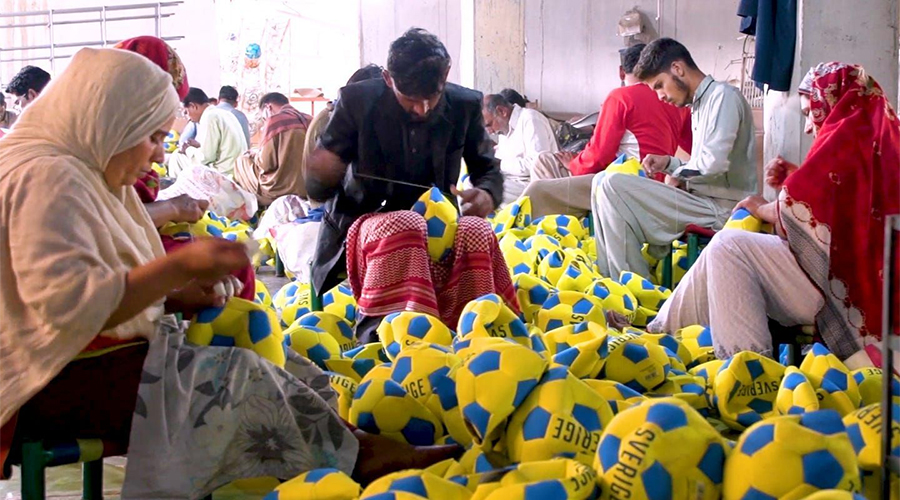Sialkot city in Pakistan is home to at least 1,000 football factories where nearly 70% of the world’s soccer balls are made, according to Business Insider.
This heavy production is done in the small city located in the north-east of Punjab province, where it is a major source of income in the city that employs nearly 60,000 people.
Waseem Shahbaz Lodhi, managing partner of Bola Gema Pakistan, a factory that produces 160,000 balls per month, said, “The demand for footballs has dropped drastically due to the coronavirus because playgrounds are closed, there are no matches, people don’t have the space to play it. So buyers have cut demand by 70%.”
Read more: Italy Sets Up Textile Technology Center In Pakistan
Workers are responsible for all aspects of a soccer ball’s creation at Bola Gema Pakistan’s factory. Their responsibility includes cutting and molding sheets of hot rubber to patching together the 20 hexagons and 12 pentagons that comprise a ball’s exterior.
Lodhi further said, “The industry has been around for nearly a century, and that’s why our perfection of skills is amazing.”
Moreover, FIFA-approved balls like the ones Bola Gema makes can sell for over $100 in the US, more than the monthly wages of some workers who make them in Sialkot and Pakistan exported more than 37 million soccer balls ahead of the last World Cup in 2018 across the world.
Meanwhile, Bola Gema has already begun manufacturing balls ahead of the 2022 World Cup in Qatar.
However, business is down these days due to a stall in team sports during the pandemic and Lodhi has been looking out for his workers. “We’ve been home for two to three months, but the owners of Bola Gema still paid us. So that’s why we weren’t worried,” Saeeda Bibi, a Bola Gema factory worker said.
As the pandemic drags on, Lodhi hopes that the soccer ball industry will bounce back. “We are getting new inquiries, and we are hoping that despite the corona pandemic, we will start getting orders,” he said. “And the production that fell by 70% will gradually start getting better, and we won’t be forced to close the factory.”





















